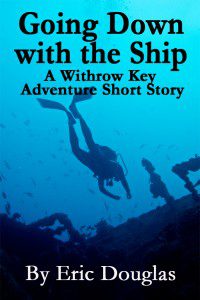Flooding Hollywoodis re-released; Kindle is FREE through Friday
About Flooding Hollywood
Flooding Hollywoodis an adventure novel that pits photographer Mike Scott against a group of fanatics bent on destroying Hollywood.
On a dive, Mikewitnesses another diver picking up stray packages underwater. He doesn’t think much about it the first day, but when it happens two days in a row, it gets his mind going. Assuming the divers are smuggling drugs into the city, Mike tips off the police. That act of curiosity and initiative places Mike on a collision course with fanatics bent on imposing their will on the city of Los Angeles.

